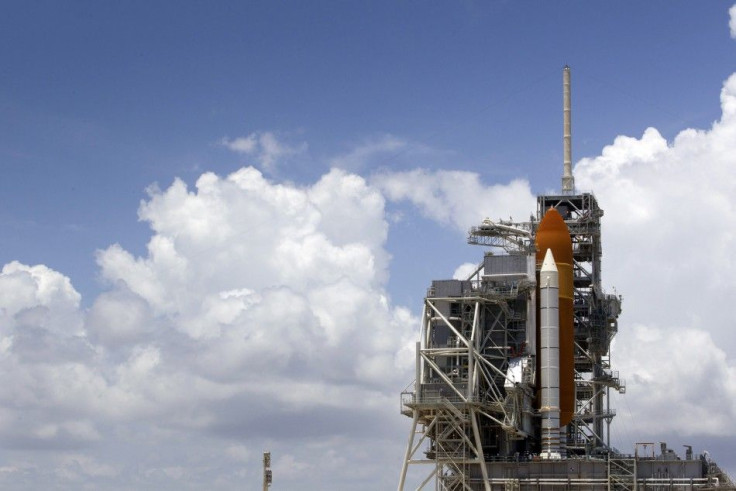Space Shuttle's Stormy Launch Ahead - 70% Chance of Postponement

The final shuttle launch may be hit by a wave of tropical storms, pushing the possibility of delay up to 70 percent.
The launch of space shuttle Atlantis is scheduled to take off at 11:26 a.m. (EDT) on Friday, July 8th, marking the final mission of the 30-year-old space shuttle program, STS-135, a 12-day program to the International Space Station.
According to USA Today, around 45,000 Kennedy guests, including members of Congress, diplomats, celebrities and the families of Atlantis' four astronauts, will fill VIP sites for an up-close view of the program's 135th launch on Friday. In total, between 750,000 and 1 million people are expected to crowd the area for the launch. At the Kennedy Space Center, however, spectators will be exposed to six times greater risk from a launch accident than those gathered on the area's roadways, riverbanks and beaches, reports the paper.
The chances of a shuttle launch accident remain slight, but the unfavorable weather conditions predicted at the sight may postpone the event to either Saturday or Sunday. If not this weekend, the next date for a possible launch will be July 16th.
According to the weather blog of Fox News, the Kennedy Space Center in south Florida will see deep tropical moisture pushing in from the Caribbean, drawing heavy rain to the region starting tomorrow through Friday.
It's not looking favorable right now for launch, said shuttle weather officer Kathy Winters, who gave a 70 percent chance of postponement, reports Wired.
Friday's forecast would have to get worse before he'd call off the launch, mission management team leader Mike Moses said at a Wednesday news conference, according to the Associated Press. A rain-free, storm-free zone is necessary 23 miles around, among other factors, in order for Atlantis to take off.
Atlantis, which flew its maiden voyage on October 3, 1985 on the STS-51-J mission, will carry a crew of four for its STS-135 mission: Commander Chris Ferguson, Pilot Doug Hurley, and Mission Specialists Sandy Magnus and Rex Walheim.
The United States is ending the shuttle program to save its $4 billion annual operating costs and use it to develop spaceships that can travel beyond the station, such as to the moon, asteroids and eventually to Mars.
After the space shuttle ends, NASA will work with the Russian Space Agency to send astronauts into space through Russia's Soyuz space shuttles. Following that, NASA plans on helping launch privately run space shuttle programs.
© Copyright IBTimes 2024. All rights reserved.





















